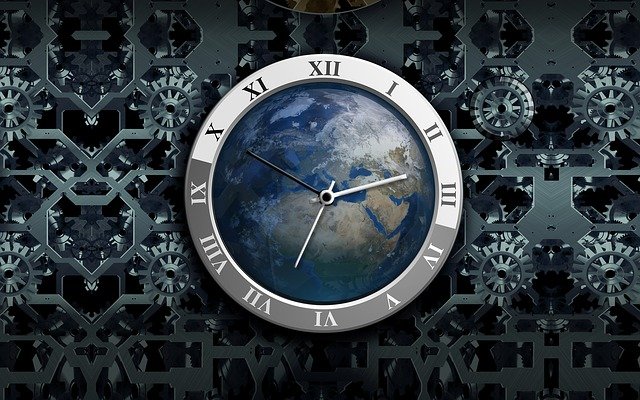The universe may have a fundamental clock. It ticks extremely quickly
Just as the metronome sets the tempo for the musician, the fundamental space clock set the time in the universe, claim theoretical physicists in their latest publication. But if such a clock exists, then it is ticking  they extremely quickly. In physics, time is usually considered the fourth dimension, but some physicists speculate that it may be the result of some physical process, like the ticking of a built-in clock. If the universe has such an elementary clock, it must strike faster than a fifth of the time per second ((10 (to 33) - one and 33 zeros in decimal notation), according to a theoretical study published in Physical Review Letters has been published. https://journals.aps.org/prl/abstract/10.1103/PhysRevLett.124.241301
they extremely quickly. In physics, time is usually considered the fourth dimension, but some physicists speculate that it may be the result of some physical process, like the ticking of a built-in clock. If the universe has such an elementary clock, it must strike faster than a fifth of the time per second ((10 (to 33) - one and 33 zeros in decimal notation), according to a theoretical study published in Physical Review Letters has been published. https://journals.aps.org/prl/abstract/10.1103/PhysRevLett.124.241301
In particle physics, small fundamental particles can achieve certain properties through interaction with other particles or fields. Particles gain mass, for example by interacting with one Higgs field, a kind of molasses that permeates the whole room.
Perhaps molecules can also experience time by interacting with a similar type of field, "says physicist Martin Bojowald. This field can oscillate (sway and vibrate), and each such cycle serves as a simple" tick "- just like in ordinary, traditional clocks "says Bojowald, co-author of the study.
Image source: Pixabay
For physicists, time is still an unexplored mystery, and two central theories in physics argue over how to define it. In the quantum mechanics, which describes tiny atoms and particles, "time just exists, it is a background," says physicist Flaminia Giacomini of the Perimeter Institute in Waterloo, Canada.
But in the general theory of relativity, which describes gravity, time changes in a strange way. A clock that is close to a massive object ticks slower than another that is further away from it. The clock on the earth's surface is delayed compared to, for example, the clock on board a satellite in orbit.
In trying to combine these two theories into one - the theory of Quantum gravity - to unite, the problem of description of time turns out to be "quite important indeed," says Giacomini, who was not involved in the research.
Studying various mechanisms of time, including fundamental clocks, can help physicists formulate a new theory. The researchers investigated what effect a fundamental clock would have on the behavior of atomic clocks, the most precise clocks ever created. If the basic clock ticked too slowly, the atomic clocks would be unreliable because they would not synchronize with the basic clock.
The result: The Atomic clocks would touch at irregular intervals, like a metronome that cannot keep a constant rhythm. But so far the atomic clocks have been very reliable, so that Bojowald and his team could determine the speed with which the fundamental clock must touch - if at all.
Physicists believe that there is a final limit to the division of a second. Quantum physics does not allow a period of time that is shorter than about 10 (to -43) seconds, a period of time the Planck time is called. If there is a fundamental clock in the universe, Planck's time can be a reasonable rate to measure it.
To test this idea, scientists would have to increase their current limit for the clock to tick - so that it would be able to tick forty times per second. This seems like a huge loophole, but to some physicists it's an unexpected discovery.
- This is a surprising theory similar to Planck's regime ", says the physicist Bianca Dittrich. However, she believes that there is probably not one basic clock in the universe, but many different processes that could be used to measure time. However, the new result lies closer to Planck's time than the experiments with the largest particle accelerator in the world, the Great Hadron Collider, "says Bojowald.
In the future, even more precise atomic clocks could provide more information about what affects time in the universe.